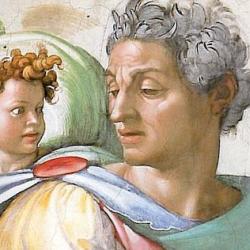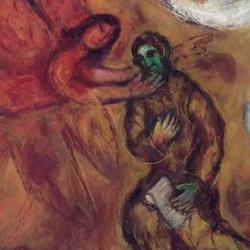“Forsake” ( ‘azab ) is one of the key words of Isaiah. It is used 22 times in the prophecy, the number of letters of the Hebrew alphabet. Isaiah is an A to Z of forsaking and forsakenness.
The word initially appears in charges against Judah, who has forsaken Yahweh (1:4, 28). Through the oracles against the nations, Yahweh warns that he will devastate cities and leave them forsaken (17:2, 9), forsaken like a wilderness for wild birds and animals (18:6; 27:10).
At the hinge of the book (ch. 40), the word’s use turns dramatically. Though Zion laments that Yahweh has forsaken her (49:14), and though Yahweh agrees that He has forsaken His bride for a moment (54:6-7) the overall message of the last part of Isaiah is the promise that “I the God of Israel will no forsake them” (41:17; 42:16). She has been forsaken and even given the name “Forsaken,” but Yahweh intends to reverse that situation and give a new name, “Not Forsaken” (60:15; 62:4, 12). Yahweh meets Israel’s sinful forsaking with His own refusal to forsake His people.
But the last use of the word in the book is a warning shot. In 65:11, we are back to the opening chapter – Israel is the people that “forsake Yahweh.” Daughter Zion has been restored, but she is in danger of turning from Yahweh again, and repeating the same drama.










